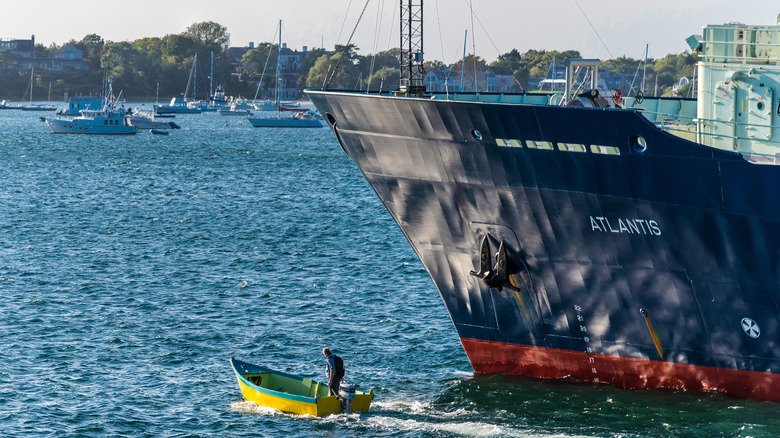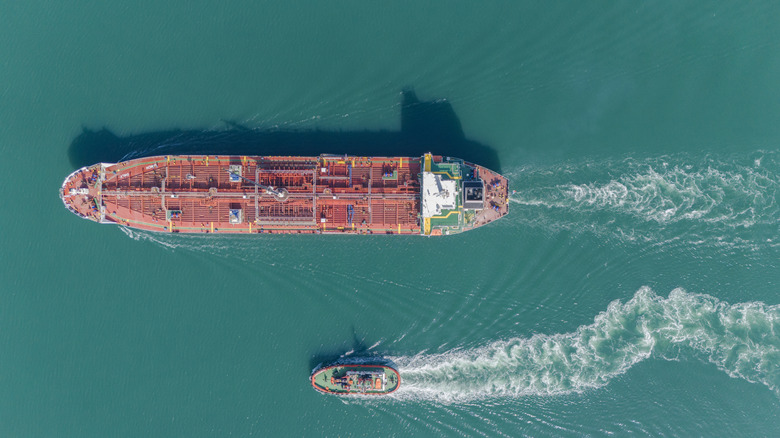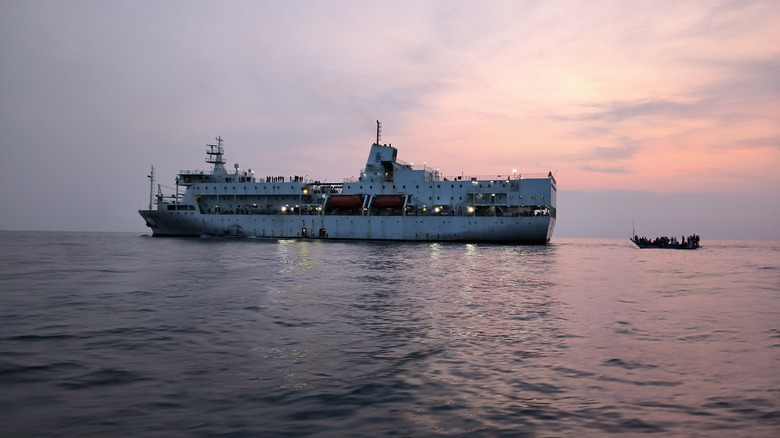What Makes A Ship Different From A Boat?
It's quite easy to mix a ship and a boat — after all, both float and move on water. But when it comes down to size, purpose, and structure, ships and boats are completely different creatures, just as a catamaran is different from other ships on the sea. Some people even wonder why a submarine is called a boat despite being able to submerge, or why a cruise ship carries dozens of small vessels on board. Well, the answer lies in how each is designed and used. Besides a different approach taken in their making, it's also about where they go, what they carry, and how they're built.
The most obvious difference starts with size. Ships are simply much bigger than boats. In fact, the general rule is — if it weighs over 500 tonnes, it's a ship. On the other hand, a boat is typically lighter, smaller, and simpler in design. Plus, it can't carry a ship. There's a major design and usage difference as well. Ships often have multiple decks, deep hulls, and are built for long ocean voyages, while boats are designed for lakes, rivers, or near the coastline. That's why you'll see ships handling international travel or massive cargo loads. However, boats are used for fishing and patrolling, or simply to cruise around for fun.
The difference in purpose, use, and operation
Ships are built for the big jobs. Whether it's a long trip across the Pacific, carrying tons of cargo, passengers, or even military gear, a ship is the one to rely on. The huge container ships and cruise liners, or the navy vessels we see, each fall into the category of a ship. Boats, on the other hand, stick closer to home. They are often used for things like fishing, patrolling, short trips, or just relaxing on the water. Big, fancy, and opulent yachts, even with all the luxuries, still fall into the category of a boat.
Another big difference is how they're operated, with ships usually running on high-tech systems like radar, GPS, and advanced communication tools. They usually have full engine rooms, heavy machinery, and need a whole crew of captains, engineers, and other staff. Boats are much simpler in comparison. Most can be handled by one person or a small team. In fact, they can be so simple that they don't even require an engine and run on paddles or sails instead. Basically, they're easier to use and don't need all that complicated gear or manpower.
Structure and legal classification
Structurally, ships are far more complex, with their hulls often V-shaped for better performance in rough ocean waters. They also have multiple levels built to support everything from cabins to lifeboats and storage. Many even include engine rooms, control centers, and crew quarters. When it comes to boats, they usually have simpler hulls and fewer internal systems. They lack the space or design to support other vessels onboard, whereas ships often carry boats as part of their safety setup.
There's also a clear legal difference. Ships have to be registered and follow global rules — in fact, they go through regular safety checks to meet international maritime standards. Boats, on the other hand, usually have fewer rules and simpler licenses, especially if they're used for recreation or local travel. So while people often mix up the terms in casual conversation, calling a ship a boat, especially in the Navy, is seen as wrong. That said, it's hard to change some habits, and that's the reason why even with such vast differences, ships and boats are just considered synonyms.


